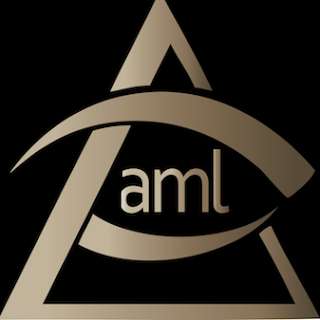When I was a child, I was very involved in my elementary school operettas. I was the title character in Puss 'n Boots, Tinkerbell in Peter Pan, and Pinocchio in the play of the same name. Pinocchio was always being prompted by both Jiminy Cricket and the Blue Fairy to do the right thing. (Some of the lyrics to one of the songs went "Heed the warning / of Blue Fairy / Go thou quickly / Do not tarry").
This is a bit of a convoluted way to introduce my thoughts to today's posts. Lately there have been several Jiminy Cricket like figures that have been prompting and probing me to think critically about what I do and to do better.
Anita Brooks-Kirkland and the Library Dragon
A prominent figure in the Canadian school library scene, Anita Brooks-Kirkland, asked several of us to complete a survey so that she could have data to write an article for Canadian School Libraries Journal. The article came out this week. You can read the article at https://journal.canadianschoollibraries.ca/taming-the-library-dragon-mission-ethics-and-library-routines/
Anita was very good about quoting people and about protecting the identities of people when they mentioned a library practice that wasn't exactly laudable. Both the questions Anita asked and the results she shared in the article really gnawed at my conscience. Some of the areas where I am guilty of lagging behind include limiting the number of books the kindergarten students can borrow, fixating on the kindergarten library book bags ("no bag, no book"), and the use of my adult library volunteer to handle circulation. You might wonder why having an adult helper might be problematic. As Anita explains,
Freeing up professional staff time for higher level interactions and instructional interventions is very desirable, but inappropriate access to circulation may constitute a serious breach of privacy. Integrated library systems hold personal information and borrower records. Trained library staff are bound by professional ethics to protect that information. Allowing volunteers, or students or even un-trained teachers to run circulation puts all borrowers’ right to privacy at risk.
Anita deliberately didn't attach any names to the less-desired practices but I have to admit that I do some of these things. I'm trying to "loosen up" with my kindergarten library practices, although with only me (and sometimes our part-time secretary) shelving books, I confess that I had to put a "flexible cap" on borrowing limits so I wouldn't be overwhelmed by the amount of books I need to put back. Yes, that was for me and not for the benefit of the learners in the space. Fingers crossed that once the restrictions are loosened a bit that I can return to library helpers and large book borrowing possibilities.
Jennifer Brown and her Guiding Principles
On Thursday, March 3, Jennifer spoke to the Winter 2022 York University TL AQ cohort. In her talk, Jenn described her guiding principles.
In case you can't read the image, it lists 5 key areas.
1) Relationships (Know myself. Be myself. Don't centre myself.)
2) Expectations (I don't ask anything of students that I won't ask of myself.)
3) Criticality (Everything in education can be weaponized.)
4) Authenticity (My daily practices need to match what I say I believe about kids.)
5) Focus (Kids matter more than books or anything else for that matter.)
Jenn doesn't pull punches when she talks and I felt some of the "blows", even though they weren't necessarily directed at me. I pointed out my own discrepancies between what I enforce and what I claim I believe when I reminded the AQ participants that we were not required to put on cameras during the session, to honour adult learning, but that I needed people to contribute somehow via a question or comment to provide evidence that they had heard and understood the presentation. I openly admitted that the requirement did not indicate that I trusted individuals to be fully present during the learning. I also cringed internally when Jenn showed a list of all the many things that can be weaponized in education, from recess to book access. Heck, even hand holding can be weaponized, as in "you can't handle walking on your own so you have to hold my hand" or "I'm sorry, I can't hold your hand right now until you ...". Jenn pointed out that even the famous Maya Angelou quote about doing better once you know better has been weaponized. I'm not sure what my next steps are going to be after noticing my own inconsistencies and unfair conduct. Maybe it's establishing a "truer to me" set of guidelines (like "I like accountability" or "I catch more flies with honey than vinegar").
Harvard University's Implicit Bias Test
How do you measure progress in equity goals? I am one of my school's chairs (a "position of responsibility") and our admin team members have been talking a lot about our SIP (school improvement plan) goals. Thankfully, the Forest of Reading has helped us unexpectedly. In one of this year's Yellow Cedar nominated books, This Is Your Brain On Stereotypes, author Tanya Lloyd Kyi mentioned the Harvard IAT, an implicit bias test. We plan on introducing this tool to our staff for some private reflection.

The tool can be found at https://implicit.harvard.edu/implicit/takeatest.html (and by the way, if you are in my school, don't take the test yet, okay? Or just take one version - there are many!) What this test does is get us to move beyond knowing "the right things to say" and actually looking at your subconscious reactions and implicit bias. I know of several people who can parrot the "politically correct" phrases, but attitudes that are closer to their true feelings are revealed in casual conversations. My co-chair and I took one of the tests together - this is technically not what you are supposed to do, because this is an individualized assessment, but we wanted to see what taking the test was actually like - and I plan on taking 10 minutes after the staff professional learning to take the test myself and then take a hard look at the results. The study states that you do not have to like or agree with your results but I think that denying what's happening in your head means you cannot address it.
Having your conscience pricked isn't fun but sometimes we have to exit our comfort zones in order to grow as educators and as people.













